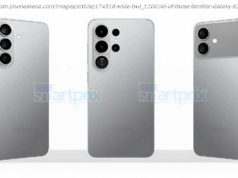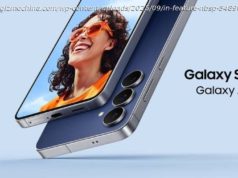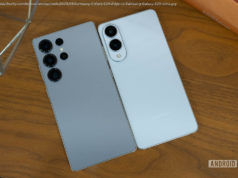Following a jam-packed WWDC, Apple has great hopes for the new HomePod and the Siri voice assistant.
Once again, Apple has shown up fashionably late to the party. This time it’s the party for smart home speakers.
But can Apple use the same recipe it has used before to reshape and conquer a market when its key competitors are giants like Google and Amazon?
“Apple is behind but the company rarely is first yet still won in music players, smartphones, and tablets, ” wrote UBS analyst Steve Milunovich in a note to investors after the company’s Worldwide Developers Conference. “Apple appears to be playing defense but needed to enter this category with a twist.”
With iPhone sales sagging and fans clamoring for the company’s legendary innovation, the company last week introduced HomePod, its first new product in two years. HomePod is a high-end smart home speaker that capitalizes on Apple’s success with digital music by offering acoustics that are superior to its competitors, the Amazon Echo and Google Home. It takes voice commands from Siri and can also control HomeKit-enabled accessories like smart lights, locks and thermostats.
But at $349, nearly twice the price of the Echo and three times more expensive than Google’s device, HomePod will come out of the gate in December facing a price disadvantage in a fast-growing market. Amazon Echo and Google Home already make up nearly 94 percent of the market, which has more than 35 million U. S. users, according to a May 2017 report from eMarketer.
“My instinct is that HomePod is not going to reach anywhere near iPod penetration levels, ” said Ken Cassar, principal analyst at Slice Intelligence. “There are too many people ambivalent about needing great sound quality and too many inexpensive options.”
But the world’s most valuable publicly traded company has used the come-from-behind playbook before.
The iPod and the iPhone both entered their respective markets years behind competitors. But their ease of use, elegant design and superior technology helped corner their markets. In 2006, five years after the iPod was introduced into a crowded digital media player arena, it accounted for about 75 percent of the U. S. market.
With the iPhone, Apple crushed already established competitors like BlackBerry to assert itself as the most popular smartphone in the world within its first three years.
Apple is still riding the coattails of the iPhone’s success a decade after its initial reveal — it is the company’s single-largest revenue generator. But iPhone sales are sagging, adding to the pressure for a hot, new product.
The Apple Watch, introduced two years ago, made up 50 percent of all wearables sales in 2016, according to the research firm Canalys. But the overall market has failed to gain traction.
Analysts believe Siri, powered by artificial intelligence, is one major hurdle HomePod will have to overcome to be a success. Despite beating Amazon and Google in introducing a voice assistant in 2011,Apple has lagged behind the two competitors in improving the accuracy and breadth of questions Siri can answer.
“For now, Amazon is ahead of the curve and more advanced with Alexa, ” said Thomas Husson, principal analyst at Forrester Research.
To avoid pitting Siri and HomePod against the smarter Alexa and Echo, Apple introduced the HomePod as a music-first, smart speaker-second device, analysts say. Instead of immediately taking on Amazon or Google, Apple pivoted the HomePod so it’s more comparable to high-end speakers from Sonos.
“That’s a shrewd move on Apple’s part, ” said CCS Insight analyst Geoff Blaber. “There’s a high chance they will fall short on smartness compared to Google Assistant and Alexa. But compared to Sonos, they are very likely to win the fight.”
Apple CEO Tim Cook said in an interview with MIT Technology Review last week that he believes his company’s AI efforts are toe-to-toe with Amazon and Google. He said the perceived lag exists because Apple does not talk about its products until they are ready to ship.
“We are not going to go through things we’ re going to do in 2019,’ 20,’ 21, ” said Cook in the interview. “It’s not because we don’ t know that. It’s because we don’ t want to talk about that.”
The HomePod won’ t be Apple’s first attempt at cornering the home as part of its ecosystem. The Apple TV and Mac Mini targeted the living room in the mid-2000s, but both fell woefully short of the high expectations the Cupertino tech giant always faces.
Blaber believes Apple needs a foot in the connected home market — even if HomePod is not the next iPhone.
“This is an important investment from Apple, ” said Blaber. “They didn’ t succeed with Apple TV. Now they need another pillar inside the home.”





